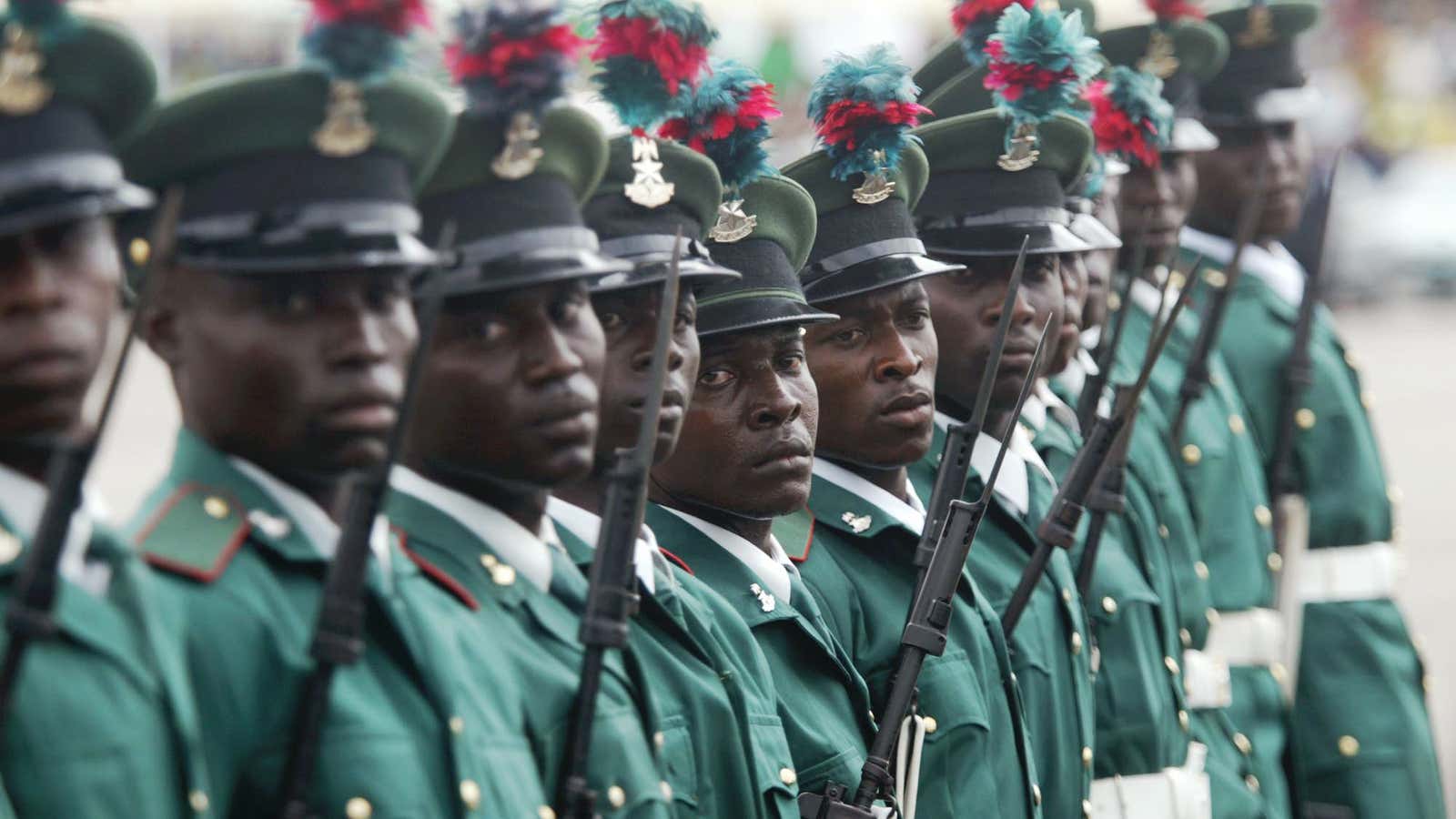Nigeria has had a long and tumultuous relationship with its military, which ran the country for more than half of 54 years since its independence. Since the establishment of the fourth republic in 1999, most Nigerians see military dictatorships as a thing of the country’s inglorious past.
That’s why it was a bit of a shock this weekend when the Independent National Electoral Commission delayed the country’s presidential election, which was scheduled to take place on Feb. 14th, for six weeks. INEC chairman Attahiru Jega said the Nigerian military warned they would be unable to guarantee adequate security during the traditionally combustible voting season, since the armed forces have been focused on the Boko Haram insurgency in the country’s northeastern states.
The military’s counter-offensive against Boko Haram has struggled mightily as the brutal Islamist group has killed thousands, displaced over a million, and claimed a large chunk of Nigerian territory. The army has suffered heavy losses, and its soldiers—70 of whom are facing execution for mutiny—have complained that are being sent to the front without sufficient training, weapons, or supplies.
But despite the Boko Haram threat, many Nigerians and international observers reacted with dismay to news of the delayed election.
“Clearly, security chiefs did not give Jega any wiggle room,” tweeted Jibrin Ibrahim, a Nigeria-based analyst for the Centre for Democracy and Development. “He could not risk the lives of so many people by conducting it without security.”
Many believe the new election date will benefit incumbent president Goodluck Jonathan’s ruling party, the PDP, which is facing a significant threat from retired general Muhammadu Buhari’s APC party. The APC could potentially run out of funds to campaign over the next six weeks while the PDP—in power since 1999—has deeper pockets.
Goodluck has called on Nigerians to accept the decision in “good faith.” Buhari described the decision as “provocative,” but also appealed for calm from all Nigerians.
The role of the military in Nigeria’s occasionally shaky democracy is a sensitive one. The Nigerian Army took it upon itself late last week to refute press allegations the military is working on plans to set up an “interim government”—which in Nigeria recalls similarly delayed elections in the nineties that led to the brutal rule of Gen. Sani Abacha.
And regardless of the political repercussions, Nigerians reacted with extreme skepticism to the idea that the military, after six years of failures, could turn the tide against Boko Haram in a mere six weeks.
If the war is still raging in six weeks, asked writer Simon Kolawole in local newspaper The Cable, ”are we going to move the elections again? What happens if, after rooting out Boko Haram, the Niger Delta militants resume operations?”
Ultimately, the delayed elections may fall well short of anything like a coup. Instead the move smacks of an attempt by the army’s senior brass—smarting at being made to look incompetent—to reassert some measure of power in shaping the country’s future, even if the chances of military victory are very slim indeed.




